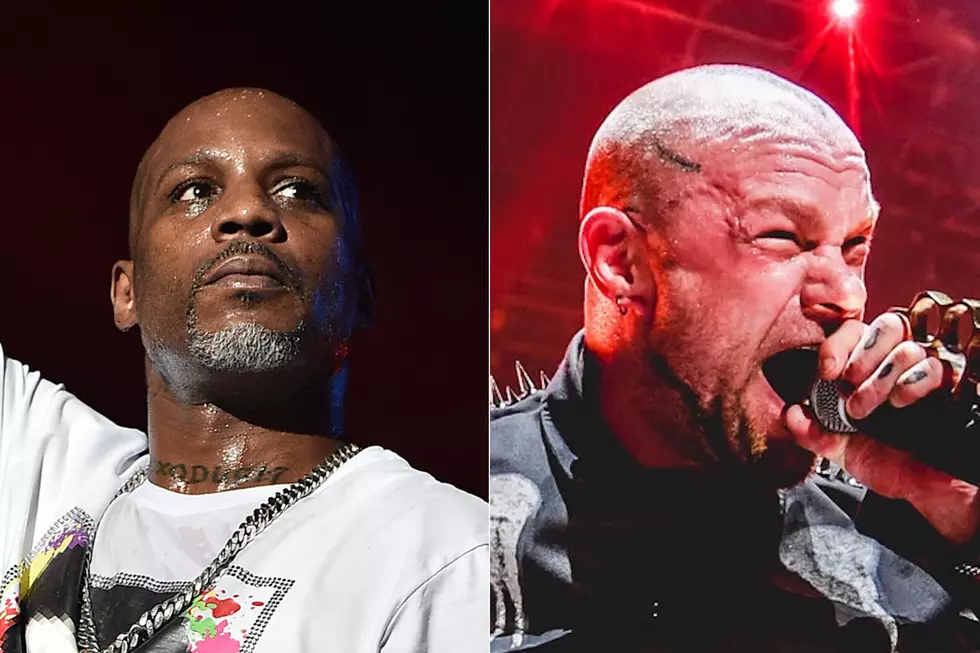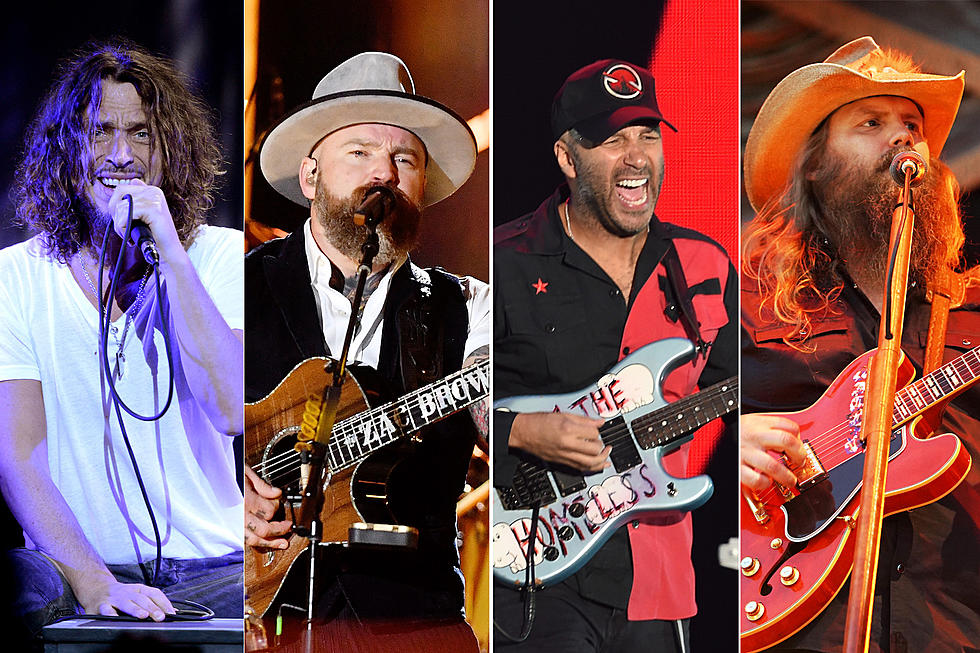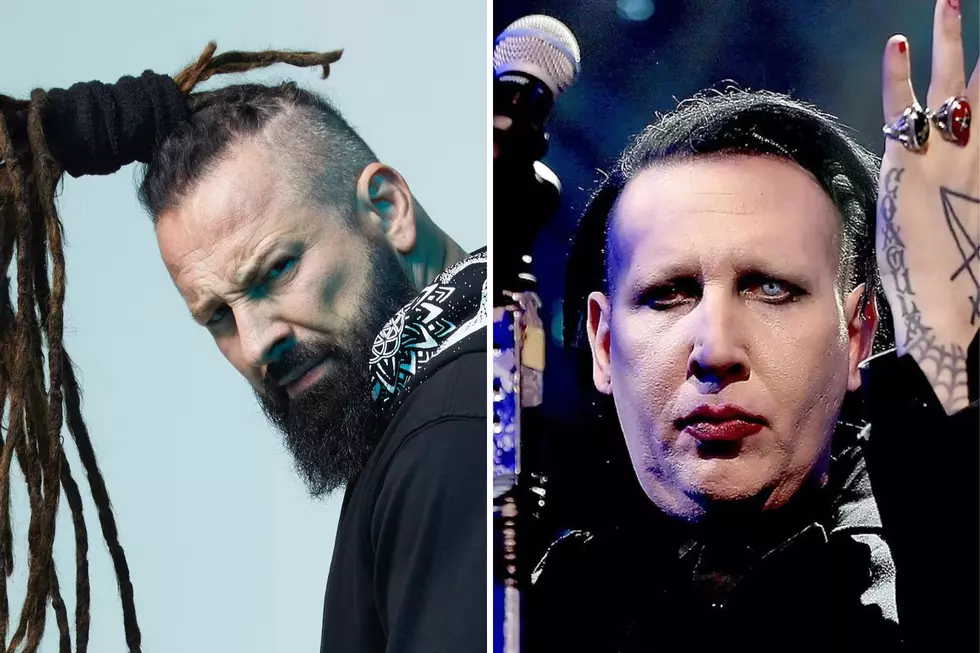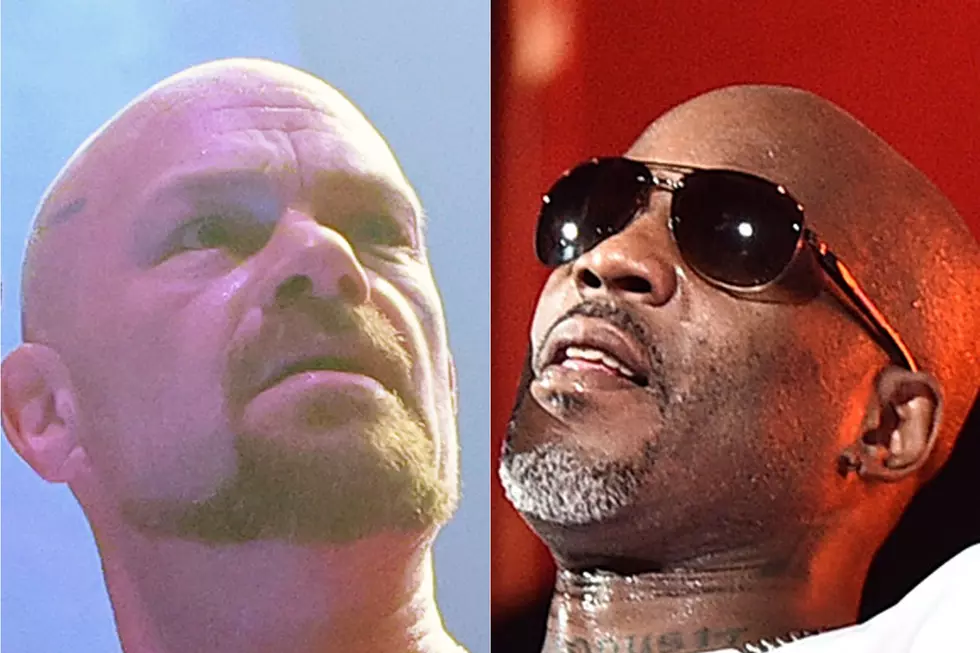![Five Finger Death Punch’s Zoltan Bathory Teams With U.S. Veterans to Fight Elephant + Rhino Poachers in Africa [Exclusive Interview + Photos]](http://townsquare.media/site/366/files/2017/09/IMG_5872.jpg?w=980&q=75)
Five Finger Death Punch’s Zoltan Bathory Teams With U.S. Veterans to Fight Elephant + Rhino Poachers in Africa [Exclusive Interview + Photos]
Within our lifetime, we may witness the complete extinction of the elephant species. It’s a terrifying reality, but due to ivory poaching, along with habitat destruction, we’re currently losing eight percent of the world’s elephant population each year. Troubled by this wildlife crisis, Five Finger Death Punch guitarist Zoltan Bathory has teamed up with a group of American veterans to help anti-poaching efforts across the African continent.
Veterans Empowered to Protect African Wildlife (VETPAW) was founded by Ryan Tate, who proudly signed up for the U.S. Marine Corps on his 18th birthday, shortly after the 9/11 attacks. Tate bravely served from 2003-2007 in some of the most dangerous locations during the Iraq War, such as Ramadi and Fallujah. Tate was recognized as his unit’s Marine of the Year in 2005 and Non-Commissioned Officer of the Year in 2006.
After completing his military service, Tate began working security for the U.S. State Department. Feeling trapped and yearning to utilize his skills as a marine along with his passion for wildlife conservation, Tate recruited fellow U.S. veterans to assist park rangers’ and African authorities’ anti-poaching efforts in countries like South Africa and Tanzania.
“I felt useless,” Tate told us in an exclusive interview. “I had these skills that the U.S. government invested so much money in teaching me and giving me and I had these invaluable experiences that I could be using for so many things. Instead, [I was] essentially in a bodyguard position back in the States, not using any of them. I knew there was an opportunity for men and women that had left the battlefield, not necessarily on their own terms, to get back out there and utilize their skills in a new manner.”
Zoltan Bathory first heard about VETPAW in 2015, around the time when news stories about one of the group’s members —a heavily tattooed, gun-wielding, badass female Army veteran named Kinessa Johnson — went viral. Deeply passionate about issues involving American veterans, Bathory immediately felt drawn to VETPAW and its mission. “[Five Finger Death Punch] have been working with veterans for a long, long time. Almost a decade at this point,” Bathory told us. “[VETPAW] employ veterans, and so this is kind of like a match made in heaven, so to speak. I'd been actually in Tanzania, where I heard of them from the local rangers. When I came back from Tanzania, that's when we connected.”
Zoltan reaching out to Ryan Tate and the VETPAW team took them all by surprise, because serendipitously, the crew were already big FFDP fans. “Every morning in Tanzania we would wake up, drink our coffee, listening to Five Finger Death Punch. Every single morning,” Tate shares. “So when Zoltan hit me up, I was like, ’Is this joke?’ This has to be fake as hell [laughs].”
Since coming in contact with VETPAW, Bathory has spent some of his free time on patrol missions withe the group and currently sits on the group’s advisory board. “It was amazing to be there, because conservation issues and the possible extinction of some of the species — elephants, rhinos — it's a problem everybody knows, but it's a far away problem,” Bathory details. “You actually have to really see what's happening and really understand the complexity of the problem. It trickles down all the way to your country and your heritage and then it comes to a world platform and you actually lose species that are crucial for the [natural] cycle. These animals make other animals’ lives possible.”
Losing one species has an impact on all the other species in an ecosystem. If it's not a balanced ecosystem, it all fails. - Ryan Tate
In 2016, the largest-ever African wildlife survey, The Great Elephant Census, announced that only an estimated 350,000 elephants were left in 93 percent of the species’ range. In the previous decade, 144,000 died due to poaching and habitat destruction. If this trend continues, we could see the extinction of elephants in just two decades. Elephants aren’t the only species in trouble, however. Rhinos are poached in massive numbers for their horns, which are used for medicinal purposes, largely in Asian countries for ailments like cancer and more casually for hangovers and sexual enhancement.
Despite its popularity, particularly in Vietnam, rhino horn offers no legitimate medical benefits. “I think it's an educational issue, because [rhino horn is] keratin, it's [the same thing as] your toenail. You don't actually need it,” Bathory points out.
Sadly, there is still a huge demand for both elephant ivory and rhino horn, so much that as many as 100 elephants and three rhinos are being killed per day in Africa. The endangered species aren’t the only victims of the illegal trade, though. Terrorist groups like al-Shabaab use the ivory and rhino horn trade to fund their operations, much like ISIS utilizes the Middle East’s heroin trade.
“An area that's poor and doesn't have money or an economy anymore, that's where terrorism and terrorist groups and criminal networks come in,” Tate explains. “They’ll say, ‘Hey, if you commit these crimes or you do these terrorist acts, we'll give you the money, we'll fill in for the economy.’ And then you have a serious problem, because now terrorism and crime is growing at a drastic rate that's almost unstoppable. So then it becomes a world issue and people need to start looking at it like that. I'm not asking you to be passionate about wildlife. If you're not an animal person, well, here's why you should be an animal person. Because it affects everybody.”
VETPAW are showing the effects of poaching to more people than ever thanks to their new TV show, Blood Ivory, on Animal Planet. The series documents the incredibly dangerous missions VETPAW take on, such as venturing into remote villages under cover of night and capturing armed poachers to hand them over to authorities. But beyond the excitement of showcasing these intricate missions, Tate is more proud to demonstrate his abilities to sit down with poachers and impact their world view.
“Just sitting a poacher down and saying, ‘Hey, you realize what you're really doing here? I know you think that you're providing for your kids.’ And maybe he's a scumbag. Maybe he's a guy that's spending his money on girls and booze and all that stuff, which is cool, it's your life,” Tate says. “But sitting them down and saying, ‘What you think you're doing is providing for you or your family, but it's actually a really dishonorable thing and you're going to lose these species.’ Talking man to man with a poacher and watching them go from having their guard up, to letting it down and realizing, ‘Hey, this guy's not here to fight against me, he's actually here to help me. VETPAW is here to help me.’”
There's a really solid chance that if you educate a poacher in the right manner and make that big of an impact on him, he's not going to do it again when he gets out of jail. - Ryan Tate
VETPAW don’t just impact local areas by scouting out poachers, they dedicate much of their time toward community outreach. In Episode Two of Blood Ivory, VETPAW visit a local orphanage to deliver food and supplies to dozens of children in need. “Watching how these guys are actually creating, making friends and building relationships with the locals, that kind of work is very, very important, because now the villages around the territory they protect understand and know who they are,” Bathory explains. “Now when poaching syndicates or people from the outside come in, these villagers understand who are the good guys and who are the bad guys. They start to have a loyalty to VETPAW.”
VETPAW relies heavily on donations to keep their operations running and supporters can rest assured that any amount goes directly to the veterans. “All the money goes right to the front lines,” Tate proudly states. “It goes towards supplying trainers and rangers with the materials they need. A lot of it goes to fuel. We need helicopter time. It goes to night vision, firearms, food for rangers, our guys and new innovation and technology for counter-poaching methods. Then some of it goes towards community engagement — soccer balls, water pumps. We put as much into the communities as we can, because it does come back to us.”
If you’d like to donate to VETPAW, check out their official website. All donations are tax deductible as a charitable contribution. You can also visit the VETPAW store to grab an official t-shirt or coffee mug. Blood Ivory is currently airing on Animal Planet, so check your local listings and fire up that DVR to watch the fascinating docuseries.
Top 50 Metal Bands Who Released Their First Album in the 21st Century
Five Finger Death Punch's Jeremy Spencer - Wikipedia: Fact or Fiction?
More From Loudwire









